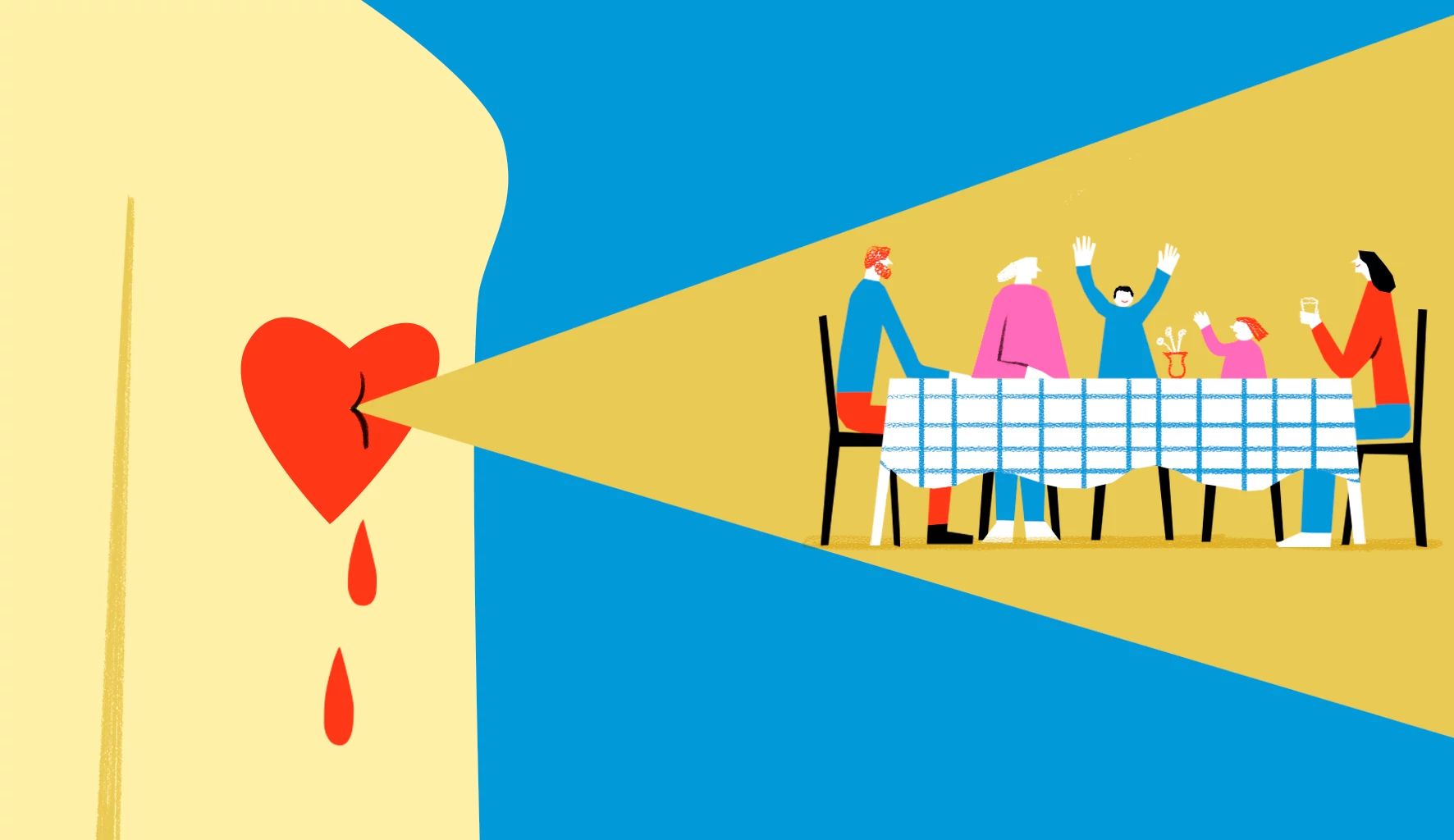AARP Hearing Center


Welcome to Ethels Tell All, where the writers behind The Ethel newsletter share their personal stories related to the joys and challenges of aging. Come back each Wednesday for the latest piece, exclusively on AARP Members Edition.
I don’t get jealous. I don’t fear losing what I have to others. But I am prone to being overcome with envy — I have a deep, painful longing for the big, beautiful, bonded families my friends have.
Especially if their children have good sibling relationships. It’s a problem that threatens to consume me.
I don’t think envy is a sin. It gurgles up in my throat involuntarily. But I agree it can be deadly — I can scarcely survive the black-hooded, scythe-wielding feeling I get when triggered by the familial love of others.
I have friends who drive much nicer, newer cars than me. And I don’t give a hoot. Some of my friends have illustrious careers, at which I don’t bat an eye. Several of my friends are doing tours of Europe this year and I wholeheartedly wish them a bon voyage.
None of these things reflect my deep-seated desires. They are circumstances that make my friends feel happy and fulfilled, but they don’t move the needle for me.
It’s easy to abide my friends’ lives being on track in ways that don’t highlight how my life feels off the rails. But when they get to enjoy what I crave most, a happy and functional family dynamic, I struggle.
My parents are divorced. My dad was of the deadbeat variety and wasn’t present in my life. In contrast, my girlfriend’s dad calls her daily for a short but sweet check-in with each other. Every. Single. Day.




























































You Might Also Like
How to Try New Tech Features for Free
Beta software carries risksAsk Dr. Adam: How Can I Boost My Immune System?
Help strengthen your body’s defenses against illness this winterI Tried to Fight It, but I Fell for My Husband’s Best Friend
I often fantasized about becoming intimate and having a future togetherRecommended for You